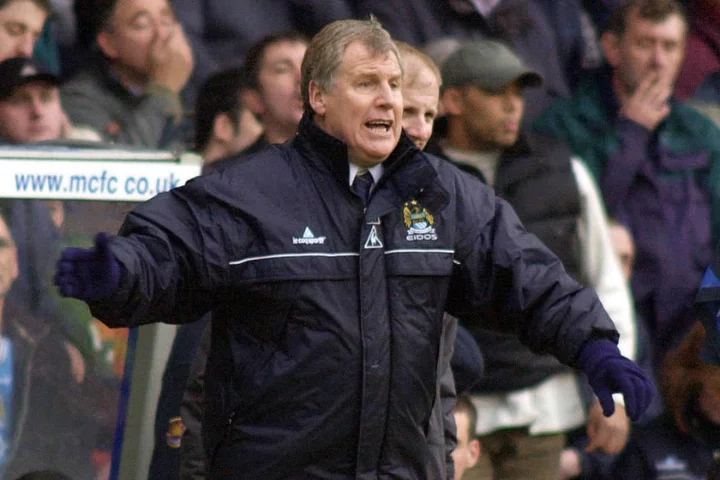
Manchester City’s treble winners arguably greatest ever English team – Joe Royle
Former Manchester City boss Joe Royle says Pep Guardiola’s current side is “one of, if not the best” English football has seen. City completed the treble on Saturday night with victory over Inter Milan in the Champions League final and Royle has no doubts where Guardiola’s class of 2023 ranks in the all-time list. Royle, 74, who led City from the third tier to the Premier League after back-to-back promotions in 1999 and 2000, told the PA news agency: “There’s no doubt about it. They’re one of, if not the best English club side there has been. “They’ve got to be talked of as one of them. They can play off the cuff or play in various systems and they can counter very quickly. “They’ve got world-class individuals, they’ve got the team ethic and they’ve got a very, very strong squad, covering every position.” Manchester United became the first English side to win the treble – league title, FA Cup and Champions League – under Sir Alex Ferguson in 1999, the same year City dropped into the third tier for the first time in their history. The debate will now rage among both clubs’ fans over which is the greater achievement and Royle said: “A treble is a treble. “They’re both equally matched when compared to their rivals in their era and both City and United fans will rightfully claim that their side’s treble was the best.” Under Royle, City ended their one season in the old Second Division, now League One, in thrilling fashion by beating Gillingham on penalties in the play-off final at Wembley. Gillingham had led 2-0 in the final minute of normal time before last-gasp goals from City pair Kevin Horlock and Paul Dickov took the tie to extra-time and then penalties, with Royle’s side winning the shoot-out 3-1. “It was an unforgettable way to win promotion,” Royle said. “And when you consider how far City have come since then, there’s no secret. “The current ownership, with their financial support, have changed City from a side that did sink to the third tier. “We got back into the Premier League, but we certainly didn’t have the funding that the side does today in order for us to stay there and we went straight back down again. “But it’s been mostly on the up since then. It can never be too quick for a club to get in the Premier League. “The current side, look where they’ve gone now. They’ve completed the treble and deservedly so. You can never get there too quickly.” Certainly anyone who finishes ahead of them next season, in England or Europe, is going to be doing very well Former City manager Joe Royle Guardiola’s City have been crowned English champions in five of the last six seasons, but, after finally securing the Champions League Royle, is not sure if they will now dominate Europe in a similar manner. “Football is a season-by-season game isn’t it?” he added. “Certainly anyone who finishes ahead of them next season, in England or Europe, is going to be doing very well. “The money has been spent very well. They’ve generally bought very well. It’s one thing having money and another thing using it wisely and City have been very good at that.” Read More Charity boss speaks out over ‘traumatic’ encounter with royal aide Ukraine war’s heaviest fight rages in east - follow live Brentford turn Kevin Schade loan move into permanent club-record deal Jon Lewis says England are ready for ‘great challenge’ of regaining Ashes Ivan Toney calls FA ‘bit spiteful’ over ban case after missing ‘dream’ World Cup
1970-01-01 08:00
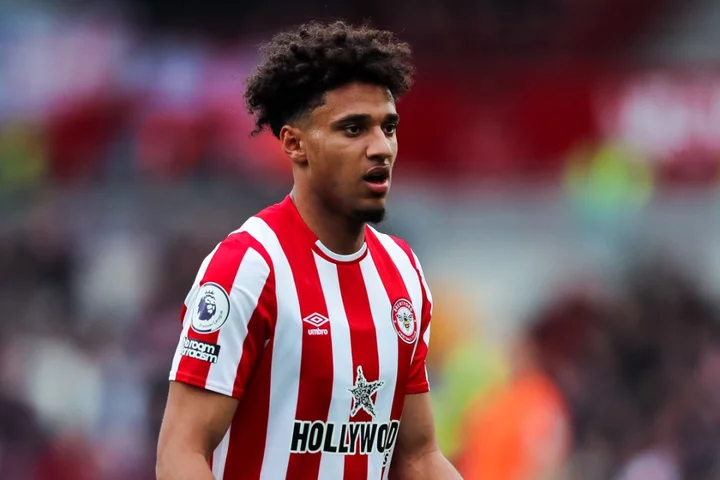
Brentford turn Kevin Schade loan move into permanent club-record deal
Brentford have completed the permanent signing of German forward Kevin Schade for a club-record fee believed to be around £20million. Schade, 21, initially joined the Bees on loan from Freiburg in January and has now signed a five-year contract. Brentford director of football Phil Giles told the club’s official website: “When Kevin joined us on loan in January, we agreed with Freiburg that the move would become permanent this summer if certain conditions were met, which included Brentford remaining a Premier League team for next season. “We have all been pleased with Kevin’s contribution so far, both on the pitch and his professionalism off it, so to have him with us now until 2028 is fantastic for the club. “We all hope both Kevin and Brentford can make further progress from here and look forward to the challenge.” Schade made 19 appearances for the Bees over the second half of last season. Read More Charity boss speaks out over ‘traumatic’ encounter with royal aide Ukraine war’s heaviest fight rages in east - follow live
1970-01-01 08:00
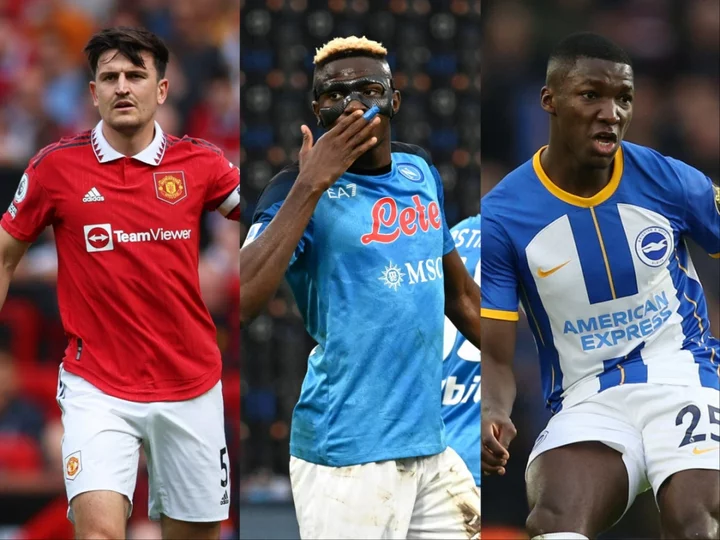
Replacement for Granit Xhaka and a No9 for Mauricio Pochettino: Transfer targets for every Premier League club
With the 2022/23 season completed and Premier League clubs now focused on the summer transfer window, WhoScored.com take a look at which players suit each team’s biggest need over the next eight weeks. First up: from Arsenal to Fulham. Arsenal What do they need - central midfielder Who should they sign - Moises Caicedo With Granit Xhaka set for a Bundesliga return, Arsenal need at least two central midfielders this summer. Declan Rice remains the priority for the Gunners, yet the West Ham star can’t be the only middle man that arrives this summer ahead of their return to the Champions League. Moises Caicedo is another linked with Arsenal and would offer an ball-carrying outlet from deep as well as terrific defensive capabilities to help fill the void that will be left once Xhaka departs. Aston Villa What do they need - winger Who should they sign - Harvey Barnes Having secured a return to European football on the final day of the season, Aston Villa are aware they need to add strength in depth in the off-season ahead of Unai Emery’s first full season at the Villa Park helm. A right-back, winger and striker are the priorities for the Villans this summer, with Harvey Barnes one who’ll tick off a problem position. Barnes’ goal exploits were overshadowed by James Maddison’s form, but the 25-year-old still managed an commendable 13 league goals for the relegated Foxes. Bournemouth What do the need - central midfielder Who should they sign - Tyler Adams Bournemouth boss Gary O’Neil worked wonders in the Cherries hotseat following his appointment as Scott Parker’s successor, but if they are to avoid a relegation dogfight, they need to strengthen in key areas. One of those will be in the middle of the park, particularly with Jefferson Lerma departing following the culmination of his contract. Bournemouth could do a lot worse than raid relegated Leeds for Tyler Adams, the American having ranked third for tackles per 90 (3.7) in the Premier League last season. Brentford What do they need - striker Who should they sign - Viktor Gyokeres Ivan Toney’s suspension leaves Brentford a little light up top. Granted, while the Bees have performed well in his absence, they can’t head into the new season without the services of their 20-goal frontman until January. While a short-term addition would suit all parties, Brentford may instead seek to bring Viktor Gyokeres up to the Premier League. Coventry’s failure to secure promotion means the Swede is seemingly up for grabs and having scored 21 and provided 12 assists last season, Thomas Frank’s side would certainly benefit from the 25-year-old’s addition. Brighton What do they need - central midfielder Who should they sign - Enzo Le Fee Brighton are set to lose both Alexis Mac Allister and Moises Caicedo this summer and while Mahmoud Dahoud and James Milner are tipped to arrive, the Seagulls still look a little light in the middle of the park. Enzo Le Fee was a standout performer for Lorient this season, yet will depart the French side in the coming weeks, and Brighton would be foolish not to consider the 23-year-old. Le Fee ranked third for tackles (108) and seventh for dribbles (68) in the 2022/23 Ligue 1 campaign, while an additional five goals and five assists has helped boost his reputation. Burnley What do they need - central midfielder Who should they sign - Albert Sambi-Lokonga Burnley will need an overhaul in central midfield this summer. They can’t rely on 33-year-old Jack Cork to help beat the drop next season, and so a player who has worked under Vincent Kompany in the past would be a viable option for the Clarets. Albert Sambi-Lokonga spent the second half of last season on loan at Crystal Palace, though still struggled for minutes at Selhurst Park. Arsenal are unlikely to rely upon Lokonga next season, noted by their pursuit of high-profile midfielders, so another short-term move would certainly benefit the Belgian. Chelsea What do they need - striker Who should they sign - Victor Osimhen To put it bluntly - Chelsea need a player to put the ball in the back of the net. Christopher Nkunku is set to sign for the Blues, but another striker would certainly aid their quest to launch a sustained title push under Mauricio Pochettino. Victor Osimhen wouldn’t come cheap, the Nigerian having scored more goals (26) than any other player in Serie A this season, yet with Todd Boehly willing to loosen the purse strings, Osimhen could prove the perfect frontman for Chelsea, and one to rid them of the dreaded No.9 curse. Crystal Palace What do they need - right-back Who should they sign - Sacha Boey Crystal Palace were able to muddle through the season with Joel Ward and Nathaniel Clyne at right-back, but the pair are now 33 and 32 years of age, respectively, and the Eagles could do with some investment in defence ahead of the new season. While he has been linked with Arsenal, Sacha Boey could prove a shrewd capture for the Eagles. The 22-year-old was key in Galatasaray’s title triumph and has made the second most tackles (86) in the Super Lig this season, so a committed body to shore up the defence would certainly be welcomed at Selhurst Park. Everton What do they need - striker Who should they sign - Alfredo Morelos Everton have been linked with a move for Wout Weghorst, the Dutchman having worked under Sean Dyche during their short time together at Turf Moor, as the Toffees seek to sign another striker. However, Weghorst has a poor record in England having scored just two goals in 37 league appearances, so they may be better off perusing the free market. Alfredo Morelos will leave Rangers this summer upon the culmination of his contract and having scored 11 goals and provided five assists in the Scottish Premiership last season, the hot-headed Colombian could prove a handy pick up. Fulham What do they need - centre-back Who should they sign - Harry Maguire Centre-back is hardly a problem position for Fulham, with Tim Ream, Tosin Adarabioyo and Issa Diop all performing admirably for the Cottagers as they beat the drop last season, but with the former now 35, some fresh blood would benefit Marco Silva’s side. Harry Maguire is unlikely to be a Manchester United player once the summer transfer window closes and with their ongoing pursuit of Kim Min-Jae, the England international is expected to leave sooner rather than later. If his England performances are anything to go by, Maguire could prove a solid addition to the Fulham defence, while a fresh start would certainly benefit the 30-year-old. Coming on Tuesday: the ten Premier League teams from Liverpool to Wolves. Read More Toney compares ban to missing out on World Cup squad Pep’s future and Premier League charges – Where next for Man City after treble? Ward-Prowse, Maddison and 12 transfer targets after relegation Football rumours: Wilfried Zaha eyes move to Paris St Germain Wembley Stadium launches dementia friendly match-day experience Tottenham progressing in bid to sign Brentford goalkeeper David Raya
1970-01-01 08:00
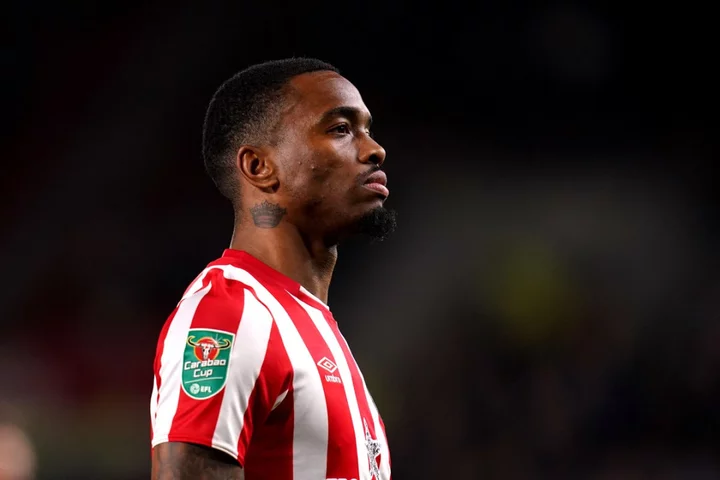
Ivan Toney calls FA ‘bit spiteful’ over ban case after missing ‘dream’ World Cup
Ivan Toney claims the Football Association “was a bit spiteful” in its handling of the Brentford striker’s eight-month ban for breaking betting rules. Toney was charged with 262 breaches in November last year, but had to wait until May before the FA announced his ban and £50,000 fine after he had admitted to 232 of the counts. The 27-year-old missed out on his World Cup “dream” after being omitted from Gareth Southgate’s Qatar 2022 squad and while he accepts his punishment, feels the timing of his charges being made public was harsh. Toney told Kick Game: “It came out just before the England camp. Obviously I missed that and the World Cup. Honestly, that would have been my biggest dream. “It was like, get it out now so he doesn’t go with England and then all of a sudden they want to wait until the end of the season (to announce the suspension). “It is what it is, if they want to do it that way. I call it a bit spiteful, but it is what it is. “I felt like that was a bigger punishment. Even now I’m missing eight months of football, I feel that was a bigger punishment, missing out on the World Cup, everybody’s dream, to missing eight months of football.” Toney’s breaches of FA Rule E8, the general prohibition on betting on football by a participant, took place over five seasons from February 25, 2017 to January 23, 2021. The FA revealed that the forward had placed 13 bets on his own team to lose in seven different matches during the 2017-18 season, 11 of these bets were against Newcastle when he was out on loan away from the club. Two other bets were placed on a game between Wigan and Aston Villa, but Toney, on-loan at Wigan at the time, was not involved in the matchday squad. “None of it was match-fixing,” Toney said. “None of what I did or was accused of doing, none of it was match-fixing. “If it was I understand that, ban me for eight months or if not longer.” England boss Southgate has been critical of the wide-reaching nature of Toney’s ban, which prohibits him from training until September 17 and from playing again until January 17 next year. Toney said he was grateful for Southgate’s support and also for that shown by his club and vowed to come back an even better player after finishing the season third in the Premier League’s scoring chart with 20 goals. I don't want anybody to feel sorry for me. A punishment is a punishment, just get on with it Ivan Toney “It felt good. Obviously, it’s going to do, the England manager backing you and standing with you,” Toney said. “I think he probably sees it as a bit harsh as well. “Not letting me train or be around the team for however long, but I’ve got the right people around me. “Every season I’ve got better, scoring more goals, and I’m hungry now to get back. When January comes, you’re going to see a different animal. “I don’t want anybody to feel sorry for me. A punishment is a punishment, just get on with it.” The PA news agency has approached the FA for comment. Read More Charity boss speaks out over ‘traumatic’ encounter with royal aide Ukraine war’s heaviest fight rages in east - follow live PGA professional with cerebral palsy hopes others will follow in his footsteps How does grand slam king Novak Djokovic compare to his rivals? French Open Q&A: Djokovic eyeing calendar Grand Slam and can Brits bounce back?
1970-01-01 08:00
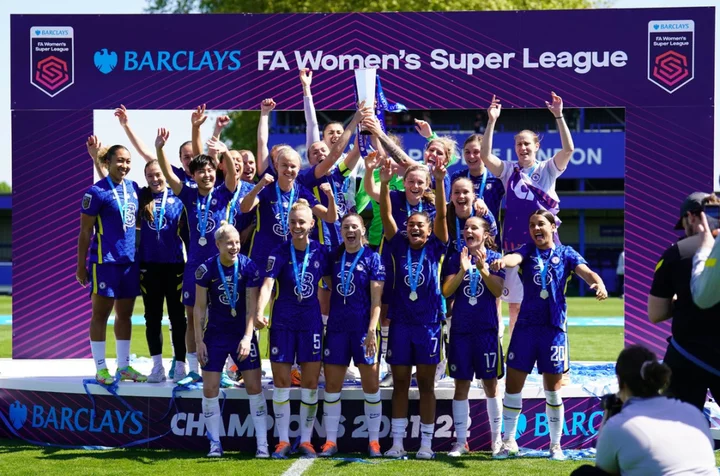
WSL revenues were rising even before Lionesses win - but clubs still posting loss
Women’s Super League clubs saw aggregate revenues rise by 60 per cent in a record-breaking 2021-22 season, according to new figures published by Deloitte. Clubs brought in combined revenues of £32million, up from £20million in the previous season, with the increases driven by new commercial and broadcast deals. The higher revenues helped clubs bring down their aggregate wages-to-revenue ratio from 92 per cent to 78 per cent despite wages rising to a combined total of £25million, up 37 per cent on the previous campaign. Clubs made an aggregate pre-tax loss of £14million, according to Deloitte’s Annual Review of Football Finance, which will be released in full on Thursday. From the start of last season, WSL and Women’s Championship clubs enjoyed the fruits of the largest broadcast deal of any professional women’s football league, worth a reported £8million per season. WSL clubs took a 75 per share and Championship clubs 25 per cent, with an equal fixed amount per club, plus a share based on league position. Deloitte noted that revenues should continue to rise. A new title sponsorship deal which began this season includes a £30million investment into the WSL and Women’s Championship from 2022-25, while clubs are also benefitting from increased attendance. Matchday revenues accounted for nearly 10 per cent of WSL clubs’ combined revenues during 2021-22 with an average league attendance of 1,923, but with crowds up by nearly 200 per cent to 5,616 per match in the season just finished, those numbers should increase considerably. Zoe Burton, director in Deloitte’s Sports Business Group, said: “The women’s game achieved significant leaps in revenue in the 2021/22 season. “The Lionesses’ success at the UEFA Women’s Euros is pinned as an inflexion point for the popularity of women’s football, so it’s telling that even before this historic win revenues had begun to grow in the Women’s Super League. “We have already seen new records set for attendance, viewership and the value of commercial partnerships in the 2022/23 season. “Organisations should not be shy about the commercial opportunities available in women’s football, and we are now reaching the point where clubs can seek to maximise the value associated with the women’s game by unbundling revenue streams to target a unique fanbase.” Deloitte found that WSL clubs continue to receive significant backing from their wider organisations, with group income accounting for around 40 per cent of revenue across the league. That backing will be used to cover the losses made by WSL clubs. The range in wage costs across the WSL clubs increased from £2.7million in 2020/21 to £3.6million in 2021/22. PA Read More Reading to go part-time after Women’s Super League relegation England announce Women’s World Cup squad as Beth Mead misses out Kelly Smith backs Arsenal to return ‘stronger’ and challenge Chelsea for WSL title next season Reading to go part-time after Women’s Super League relegation England World Cup squad: Bright and Bronze included but Beth Mead misses out Arsenal backed to return ‘stronger’ and challenge Chelsea for WSL title next season
1970-01-01 08:00
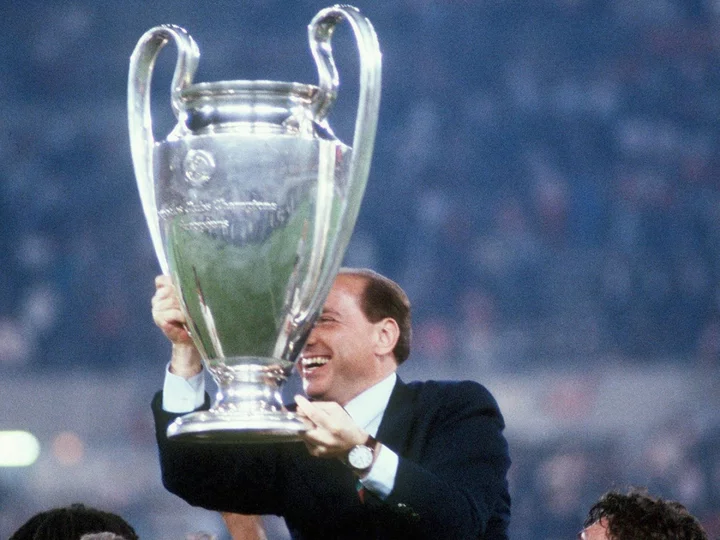
The story of Silvio Berlusconi and the birth of the Champions League
A version of this story was published in February 2017 Diego Maradona was one of many players struck by the strange “uniqueness” of the occasion. He wasn’t to know the half of it. Because, the last and only other time that Napoli travelled to Real Madrid - back in the 1987-88 European Cup - it involved a hugely bad-tempered game that also saw a manager call a player a “mafioso” and took place in front of no fans and in an odd silence, due to crowd trouble the previous season from Real’s infamous Ultrasurs. It was hardly the setting for such a highly anticipated match between two heavyweights, not to mention the meeting of one of the greatest players ever and the most successful European Cup club ever. All of that will likely get replayed in the build-up to Napoli’s return to the Bernabeu on Wednesday, but none of it is what really makes that 1987 match unique. This was actually the game that changed European football. AC Milan owner Silvio Berlusconi was one of many watching, but he couldn’t share in the excitement around the fixture. He was aghast at the fact that two clubs like that could meet as early as the first round of the competition, as was happening here. It was hardly the stage to waste such a highly anticipated clash, or to waste one of the sides that would be eliminated but instead should have been making the competition all the more enticing later on. Berlusconi naturally feared the same could happen to his own club, but also had wider concerns. So, he set in motion his plans for a European super league. That didn’t happen, but the idea - and the threat - directly led to the creation of the Champions League, and the super-club-dominated era we have today. It is also a situation with several levels of irony. What is only the second ever tie between Real and Napoli is now seen as a novelty in a last-16 stage that has meetings of Barcelona-PSG and Arsenal-Bayern Munich both being replayed for the fourth time in just five years, a level of repetition that has dulled some of the Champions League’s intrigue and mystique. It was exactly the intrigue and a mystique of a rarely-played fixture coming in the competition’s old opening knock-out round, however, that led to that. What’s more, this growth of the Champions League has someway cannibalised some of those who were initially so behind super league ideas - from Rangers in Scotland to Liverpool and even Milan themselves. It’s certainly difficult not to wonder what Berlusconi now thinks about Milan’s meek drift away from the glamorous competition he helped create. You don’t have to wonder what Real and Napoli thought on being drawn against each other so early in 1987, though. They were stunned. Part of the reason was that the first-time Italian champions had no European pedigree, so were unseeded. Real’s pedigree was emphasised by the fact this was their 100th European Cup match at the Bernabeu, making it all the more incongruous that it would take place in front of the stadium’s empty stands. A two-game closed-doors order was the price for crowd trouble in the previous season’s semi-final against Bayern Munich. It was probably oddly fitting that the match that would prove so transformative for the quality, glamour and scope of the competition, however, was a poor game played in front of nobody. Described by Mundo Deportivo at the time as a “cold” occasion where the players were “orphaned” on the pitch, it did heat up between the teams. Both squads probably took Maradona’s demand to “go and batter them!” a bit too literally. Many kicks and apparently punches were traded, a bag of ice was thrown at Real manager Leo Beenhakker, and Napoli’s Salvatore Bagni later claimed the Dutch coach and some of his players had called him “mafioso”. Beenhakker did apologise for that before the second leg, again citing the “unique” circumstances of the game, but from the vantage point of a 2-0 victory. The goals summed up the level of performance. Michel scored from a penalty, Fernando De Napoli was responsible for an own goal, all to the sound of silence. Returning to Spain for the first since leaving Barcelona in 1984, Maradona had been marked out of the game, and blamed Napoli’s poor display on the pressure of a first appearance in the competition. “You don’t have to exaggerate,” he said. “We did not see the true Napoli, perhaps because of the responsibility of a debut in the European Cup.” It was exactly this kind of quirk, however, that so concerned Berlusconi. He just couldn’t see the logic in the competition’s best - and most televisually lucrative - teams potentially going out because of one bad night, one stroke of bad luck. It was precisely this Berlusconi feared for Milan, as he admitted in what would prove a hugely prescient interview with World Soccer in 1991. Amid predictions about the decline of international football and how European Union regulations would completely condition the continental game, the mogul came out with the following: “The European Cup has become a historical anachronism. It is economic nonsense that a club such as Milan might be eliminated in the first round. It is not modern thinking.” Berlusconi had shown a lot of very modern thinking, particularly by football’s conservative standards, since taking over Milan in 1986. Though always a fan of the club, he saw them as one arm of his business empire. Berlusconi made little secret of his plans to use both the Rossoneri brand and his media company Mediaset together to maximise both. Having already revolutionised broadcasting in Italy with the way his innovative approach to regional stations evolved into the country’s first national private TV station in Canale 5, he had similar plans for football. Berlusconi felt the sport was utterly wasting its potential in this area, and not at all reaching a potential pay-TV audience of millions and beyond. He thought it absurd that the biggest clubs in a sport that involved so many popular stadium events were not regularly meeting in glamorously lucrative matches. Martin Schoots is now a prominent European agent representing players such as Christian Eriksen, but was then a journalist primarily covering the three Dutch stars at Milan - Marco van Basten, Ruud Gullit and Frank Rijkaard - and was always impressed with Berlusconi’s approach when they met. “He was a visionary,” Schoots says,” and very clear and convinced about what developments would come. His philosophy was that football was a spectacle.” Or, as was put by some of those close to Berlusconi, “the television spectacular world-wide” - and the potential audience for his Canale 5. Making the European Cup a super league was not quite a new idea, though. That had actually been creator Gabriel Hanot’s initial plan for the competition in 1955 in order to better reflect “rightful” champions than the nuances of knock-out football, but proved impractical with the travel and communication of the time. Liverpool had also come up with a discussion document suggesting mini-leagues in 1978, around the time they were drawn against Nottingham Forest in the first round, and that had been revived in 1984. No-one, however, had gone for it with the same force or sense of structure to it as Berlusconi. this Super League was based on merit, tradition and television - and therefore it was a league for big television markets Alex Flynn After initial moves with Real president Ramon Mendoza were rejected, the Italian businessman decided to commission a blueprint for a ‘European Television League’ in 1988. The man who ended up with that commission was Alex Fynn, then of Saatchi and Saatchi. A huge football supporter, Fynn had already given a talk at an event for the Rothman’s Football Yearbook called a ’10-point blueprint for football’, suggesting exactly a European super league. It was subsequently printed in the Times, and word got around. “A few weeks later, I got a call from the head of our Italian agency,” Fynn tells The Independent now. “He said ‘here’s the job you always wanted: design a super league for Berlusconi.’ And the reaction? “My reaction? My reaction was my head was turned, I was flattered, and I did what I thought he wanted - not necessarily what football needed. So this Super League was based on merit, tradition and television - and therefore it was a league for big television markets. I think it had a league of about 18 clubs and certainly two each from England, Italy, Spain… that was the plan.” It was a plan initially rejected by Uefa, but had still done its job. The idea was out there, as was the underlying threat of a possible breakaway and possible changes were now on the table. “He decided to publicise it and use it as a stalking horse and catalyst to support his argument,” Fynn says of Berlusconi. “I think it went further than that. When someone like Berlusconi has a plan for a breakaway European super league, even Uefa had to sit up and take notice. The underlying threat was this businessman might have the wherewithal to do what he says. In theory, breakaways aren’t tangible, because they need the sanctioning of Uefa and Fifa. So maybe he realised that and maybe all he was doing was to produce the plan to affect some sort of change that would benefit his club and his commercial business - which of course it did.” Uefa fundamentally realised the dilemma between trying to keep the big clubs happy and keeping their structures intact, and thereby had to strike a balance, setting a dynamic that would lead to the current situation - but keep tilting one way. In the autumn of 1991, at an extraordinary Uefa congress, the then 35 members voted in new proposals, this time primarily put drawn up by Mendoza and former Rangers secretary Campbell Ogilvie. The quarter-finals would be replaced by a group stage, and league systems would be part of the competition for the first time. Even more important than that structural change, though, Uefa contracted the marketing company TEAM to sell it. The competition would the next season become the Champions League - to create what Fynn describes one of international sport’s two “supreme branded events” along with the NFL, right down to the distinctive classical anthem - an exclusive ‘family’ of corporate sponsors were signed up, and TV packages would be sold to the highest bidder, based on market share. Big clubs from the leagues with the largest TV markets would earn more and more money, accumulating more and more political capital Crucially, Berlusconi’s broadcasting model had properly permeated club football for the first time. The European game’s governing body had adopted many of its principles, as would the Premier League and many of the continents major clubs, bringing huge finances into the game - but also greater disparities than ever before. Big clubs from the leagues with the largest TV markets would naturally earn more and more money, accumulating more and more political capital, to the point more and more changes to the Champions League were inevitable. Finally, with two of this week’s fixtures offering the clearest examples in Barca-PSG and Arsenal-Bayern, we have the regular “television spectaculars” Berlusconi so envisaged. He probably didn’t envisage them, however, without Milan. That team he created, however, might still be the most influential in history. Because, just as they were changing football on the pitch with Arrigo Sacchi’s tactical ideas, the club were also changing football off it through Berlusconi’s economic ideas. And, if it was fitting that the first leg of the Real-Napoli tie was so off-putting given the change that would follow, it was equally fitting the return would give a sign of what was to come; what was capable - both in terms of the event, and the takings. This truly was the “television spectacular” Berlusconi desired. In front of a raucous 82,231 crowd at Napoli’s San Paolo stadium, and with Brazilian star Careca back in the team after injury, the revenge-driven home side finally did what Maradona demanded and “battered” Real in the right way. If only for 44 enticingly intense minutes. That Real team never got beyond the semi-finals, and were the very next season hammered 5-0 by Milan in a historic landmark of a game Defender Giovanni Francini had set the occasion alight by making it 2-1 after just after the half-hour, and Napoli could have added many more before Careca - of all people - missed a fine chance on 40. Within four minutes, Emilio Butragueno had scored the decisive goal. Real were through. If history regularly repeats itself, it’s interesting how so many of the same debates do, too. In the aftermath of that game, Maradona’s European pedigree was questioned, while Butragueno’s clinical brilliance was widely praised. Neither would actually end up winning the European Cup, as that Real team never got beyond the semi-finals, and were the very next season hammered 5-0 by Milan in a historic landmark of a game. At the time, though, Real were convinced they were on the brink. They even celebrated that victory in an unusually ostentatious manner. Beenhakker was remarkably moved to declare a mere first-round win - for a club that had then won the competition six times - as “a result for history”. It was to prove exactly that, but not in the way he imagined. The future could already be imagined from Napoli’s earnings from the game. They received 10,000 million lira due to both ticket and television sales, estimated at that point to be a world record. The die had been cast - and is still rolling. The Champions League continues to gradually change according to the preferences of big clubs, if at a somewhat glacial pace. “The big clubs never have enough money,” Fynn says. “That’s why you can never satisfy them, whatever changes you make.” Right now, what generally happens is that we see a lot of the same clubs, and a lot of the same fixtures in the latter stages of the competition - to the point Real and Napoli is again a novelty. It is thereby a fixture that will forever remain unique. Read More Pep’s future and Premier League charges – Where next for Man City after treble? How Pep Guardiola can become the undisputed greatest manager Man City fans feel let down by Uefa’s ‘shambolic’ organisation of Istanbul final Football rumours: Wilfried Zaha eyes move to Paris St Germain The sporting weekend in pictures Pretty Woman makes Pep Guardiola’s day as Julia Roberts hails Man City champions
1970-01-01 08:00
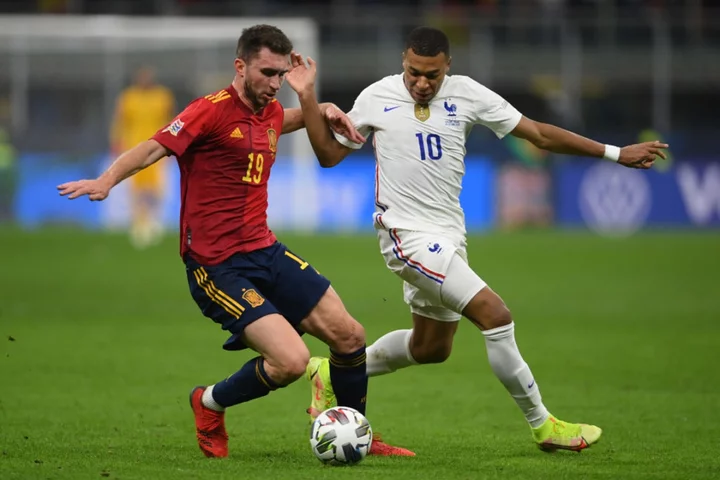
When are the Uefa Nations League finals, who is playing and how to watch?
While much of the home nations’ focus this week will be on Euro 2024 qualifying, the finals of the 2023 Uefa Nations League are also being held. It means we’ll have a successor to France as champions of the tournament, which this year saw England and Wales both relegated from League A and Scotland promoted from League B. Republic of Ireland and Northern Ireland remain in Groups B and C respectively. Here’s everything you need to know about the finals, who is involved and how to watch across the week, including Sunday’s grand final. Who is playing in the Nations League finals? The four nations involved in the finals are Netherlands, Spain, Italy and Croatia . Netherlands are hosts; the games are being played in De Kuip, Rotterdam, and De Grolsche Veste, Enschede. What are the fixtures and when are they? In the semi-finals, Netherlands play Croatia at 7:45pm BST on Wednesday 14 June. One day later at the same time, Spain play Italy. The losers of each semi will play each other in the third-place play-off at 2pm on Sunday 18 June, with the winners meeting in the final on the same day at 7:45pm. Where can I watch? Both the semi-finals will be screened on Viaplay Sports 1, as well as the third-place play-off. The final will be on Viaplay Sport 1 and Channel 4, and can be streamed via the All 4 app. All Viaplay matches can be watched via the website and app. How does the Nations League impact Euro 2024 qualifying? There is no automatic qualification for Euro 2024 by winning the 2023 Nations League. However, with two places available in each group through qualifying it is unlikely any of the quartet will miss out in any case. In the event they do finish outside the top two in their Euro 2024 qualifying groups, the six best-performing nations in the Nations League will be handed play-off spots for a last shot at reaching the Euros. Odds Netherlands 21/20 - Draw 12/5 - Croatia 32/11 Spain 13/10 - Draw 9/4 - Italy 41/17 Overall winner: Netherlands 9/4 Italy 7/2 Croatia 9/2 Spain 11/2 Read More Tottenham progressing in bid to sign Brentford goalkeeper David Raya Jarrod Bowen: From Hereford and Hull to West Ham’s humble European hero Soccer Aid 2023: England vs World XI result, final score and reaction Soccer Aid 2023: England vs World XI result, final score and reaction Toney compares ban to missing out on World Cup squad How Pep Guardiola can become the undisputed greatest manager
1970-01-01 08:00
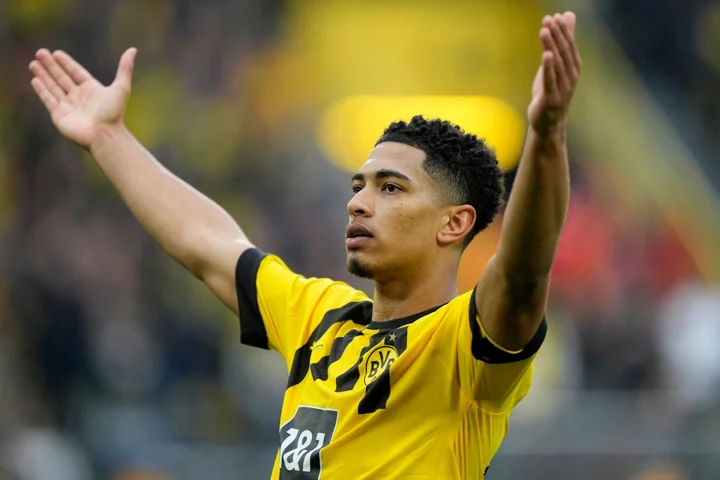
How Jude Bellingham can become the anti-Haaland for Real Madrid
It may be of scant consolation in the Ruhr Valley but Borussia Dortmund’s status as the footballing world’s preeminent feeder club seems cemented. A few days before Erling Haaland, their 2022 flagship sale, played in a Champions League final, there was confirmation that Jude Bellingham, his 2023 counterpart, is going to serial Champions League winners Real Madrid. He was perhaps overshadowed by the Miami-bound Lionel Messi but it probably still represents the summer’s most momentous transfer. There have been times over the last two seasons when Real have seemed to be mounting a lone campaign to prevent the Premier League from dominating Europe; they eliminated three English opponents last season and two this before the emphatic 4-0 defeat to Manchester City. It doesn’t quite reverse the scoreline, but as City were also suitors for Bellingham, Real gained revenge of sorts. Perhaps they are never more potent in the transfer market than when hammered on the pitch: in 2009, after being thrashed 4-0 by Liverpool, they went out and bought Cristiano Ronaldo, Karim Benzema, Xabi Alonso and Kaka. Fourteen years and five Champions Leagues later, Benzema is finally leaving. That Bellingham is still a teenager, if only for a few weeks, opens up the prospect of a sequel, a continuum of success. Maybe a generational talent will help swing the balance of power back to where it has often resided, in the Bernabeu. It also shows that his is a career unlike any other English player: even if the Premier League eventually does beckon, it will only be after playing in the Championship, the Bundesliga and La Liga. There is an English trait towards insularity, but Bellingham feels increasingly cosmopolitan. And Real still seem the ultimate destination club. In a world of various rivalries – England versus mainland Europe, new money against old – the siren call of Spain’s two superpowers remains strong. Being Real – or Barcelona – comes with certain advantages; they have long exerted a gravitational pull for Spanish, Portuguese and South American footballers but Bellingham is proof it still extends beyond them. It also confers an economic advantage. If Barcelona’s current financial strategy is to get everything and everyone on the cheap, Real may have got Bellingham for a relative bargain. Sizeable as an initial fee of £86 million is, it is less than many anticipated. When Liverpool bowed out of the race for him, the sense was that Bellingham could go for £130 million; even £86 million would have been beyond Liverpool’s parameters, as some other clubs had already concluded, while Manchester United’s need for a striker meant he could not be their top priority. It may have only left a market of two: Real and City. In his own way, Bellingham is the anti-Haaland. Whereas there was a clear vacancy for a centre-forward in Manchester, there is congestion in the queue for midfield spots in Madrid. Carlo Ancelotti might be the greatest diplomat of his age. He might also need to be, with the next generation of Bellingham, Eduardo Camavinga, Aurelien Tchouameni and Federico Valverde, while there is also the ancien regime of Toni Kroos and Luka Modric to placate. In one respect, it may have been better for Real had Bellingham joined in 2024 when one or both of Modric and Kroos could leave. In the meantime, even the compromises of fielding Camavinga at left-back and Valverde on the right wing may not shield the reality each has a compelling case to start in midfield in the major matches. Six into three does not go. Nevertheless, Real still look masters of succession planning. It is a way in which they have reinvented themselves. Vinicius Junior is proof they are now signing Galacticos before they become Galacticos and, for all his talent, Bellingham has not yet gravitated to the level of fame players such as Zinedine Zidane and David Beckham had when Real bought them. But it is notable that Bellingham joins as perhaps the last of the old-school Galacticos goes: Eden Hazard was the trophy signing, the €100 million man who left on a free transfer. Real got four goals in La Liga from Hazard over four seasons and if injuries rendered him and them luckless, Bellingham offers the prospect of more longevity and resale value as well as a greater impact. Hazard apart, Real have been smart buyers in recent years, with a judicious mix of long-term investments, astute free transfers and players acquired for less than their actual value. They have debunked their own dishonest rationale for trying to found the Super League by handling transition within the existing parameters of their budget, and perhaps emerging stronger at the end of it. Now Real are simultaneously delaying the future with Kroos and Modric, being forced into it by Benzema’s departure and preparing almost perfectly for it. They seem to have the midfield for the 2020s. If, in due course, Bellingham is joined at the Bernabeu by either Haaland or Kylian Mbappe, they may have the forward for the decade, too. Read More Jude Bellingham to become the eighth Brit to play for Real Madrid Lionel Messi to Inter Miami: Apple deal, MLS contract, salary, debut and everything we know The trick that made Erling Haaland the ultimate finisher – in more ways than one
1970-01-01 08:00
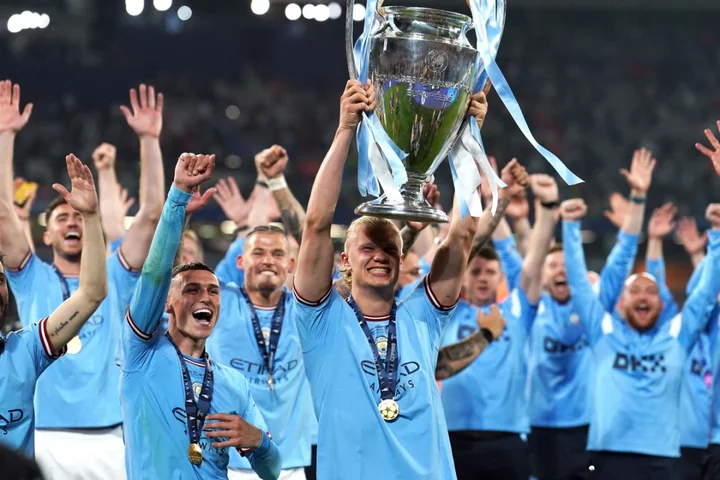
Pep’s future and Premier League charges – Where next for Man City after treble?
Manchester City reached the pinnacle of the European game with victory in the Champions League final on Saturday, which also saw them complete the treble. Here, the PA news agency looks at what could come next for the club. Could this be the first of many European triumphs for City? The club will certainly hope so. While winning the Champions League may have been a long-held ambition and the culmination of everything hitherto done in a now 15-year project under Abu Dhabi ownership, it was not a one-off target. The club have advanced considerably on and off the field and they intend to establish themselves firmly among the continent’s heavyweights. Winning every season is obviously not realistic but they want reaching the latter stages each time to become the norm. Will Pep Guardiola carry on at the helm? The inspirational Catalan has been the central factor in City’s success. The club identified Guardiola as the man to bring them European glory long before they even appointed him and their set-up is tailored to him. Their trust in him has paid off handsomely and they will naturally want him to stay as long as possible. There is uncertainty as Guardiola has never favoured long-term commitments. All his contract renewals at City have been relatively short. After winning the Champions League there is a feeling he could see his business as done when his current deal expires in 2025. On the other hand, he does seem firmly wedded to the City project and spoke on Saturday of not wanting the club to win one Champions League “and disappear”. City fans can expect at least a couple more campaigns from him. Will he need to reshape the team? With the way City have charged through the closing stages of the season to sweep up three trophies, there would seem little reason to make major changes. A specialist left-back would be desirable after Joao Cancelo left on loan in January and seems likely to move on, but that position has been a recurring problem throughout Guardiola’s tenure and has hardly hindered them. Some new signings may be necessary if the influential pair of Ilkay Gundogan and Bernardo Silva leave. Gundogan is out of contract this summer and yet to commit while Silva is apparently open to a new challenge and could go if a suitable offer arrived. City are hopeful both will stay, however. Other than that, there seem no pressing issues. Can they maintain their standards? It would surely be impossible for City to remain at the same level they have been this season. Last year Liverpool produced a very high standard and came within a whisker of winning the quadruple but, after their exertions took their toll, fell away this term. City will be anxious to ensure any downturn is not as dramatic. Five Premier League titles in six years, however, suggests Guardiola has a good idea how to prevent this. There is an elephant in the room though isn’t there? Yes. The Premier League’s Financial Fair Play investigation into City may be out of sight at times but it has not gone away. City are facing more than 100 charges for alleged rule breaches. This could loom over them for some considerable time but, with little clarity over the process or the nature of the charges, it will be business as usual in the meantime. Read More Charity boss speaks out over ‘traumatic’ encounter with royal aide Ukraine war’s heaviest fight rages in east - follow live Zach Mercer and Danny Care included in England World Cup training squad Football rumours: Wilfried Zaha eyes move to Paris St Germain On this day in 2019: Chris Froome ruled out of Tour de France after crash
1970-01-01 08:00
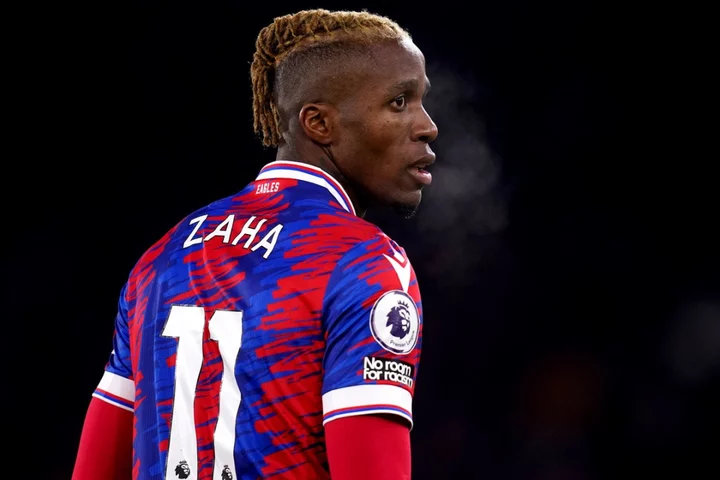
Football rumours: Wilfried Zaha eyes move to Paris St Germain
What the papers say Crystal Palace forward Wilfried Zaha could move to French giants Paris St Germain on a free transfer this summer, the Sun reports. The 30-year-old scored seven goals in 27 games for Crystal Palace in all competitions last season and is reportedly attracting interest from the Ligue 1 champions. After securing the signature of Argentina midfielder Alexis Mac Allister, Liverpool are looking to add more strength to their midfield with the club linked with Southampton’s James Ward-Prowse, the Mirror said. The 28-year-old is in high-demand across the Premier League after Southampton’s relegation to the Championship. Chelsea are weighing up a deal with Champions League runners up Inter Milan, according to the Sun. The Blues are reportedly offering the Italian club Romelu Lukaku, who is currently there on loan, and Senegalese defender Kalidou Koulibaly as they look to sign Inter goalkeeper Andre Onana. Social media round-up Players to watch James Maddison: Newcastle United are said to be narrowly in front of Tottenham in the battle to secure the 26-year-old Leicester midfielder, valued at £40million, Sky Sports report. David Raya: Brentford’s Spanish goalkeeper is weighing up offers from Tottenham and Manchester United, with Spurs reportedly close to agreeing personal terms with the 27-year-old, according to Goal.com. Read More Charity boss speaks out over ‘traumatic’ encounter with royal aide Ukraine war’s heaviest fight rages in east - follow live
1970-01-01 08:00
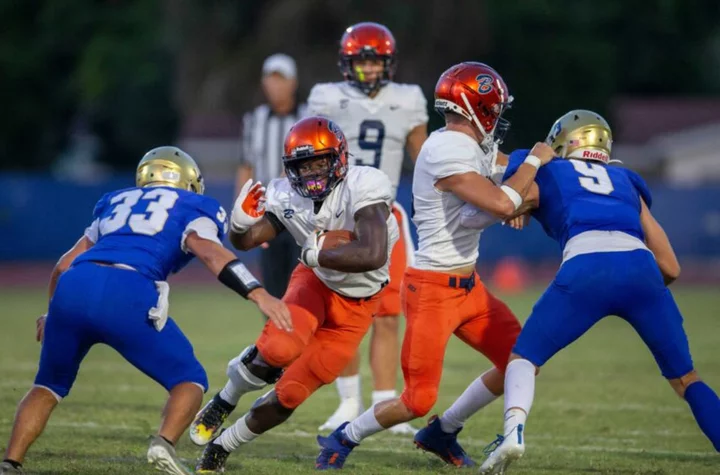
CFB recruiting: Georgia flips RB; Ohio State leads for 5-star; Michigan adds DL commit
It was a big recruiting weekend for college football powers Georgia, Michigan and Ohio State with commits and predictions galore following official visits.While the recruiting class of 2024 will be in the spotlight in December and next February on National Signing Day, the real work on the recru...
1970-01-01 08:00
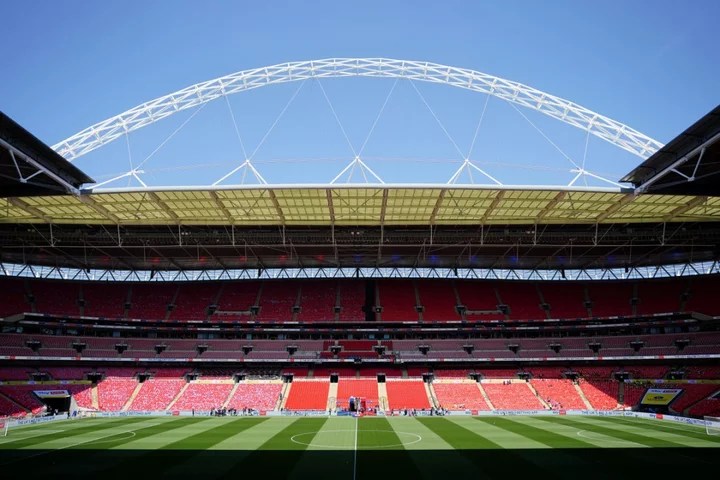
Wembley Stadium launches dementia friendly match-day experience
Wembley will become the UK’s first dementia friendly national stadium in a bid to keep sports fans affected by the condition “at the heart of the action”. The Football Association and official charity partner Alzheimer’s Society have collaborated to improve the match-day experience for people living with dementia, who can find sporting venues disorientating and overwhelming. Football’s governing body has also backed Alzheimer’s Society’s new Dementia Friendly Sports Clubs and Venues guide, while both the Premier League and the Racecourse Association have pledged their commitment to becoming dementia friendly. Alzheimer’s Society chief executive officer Kate Lee said: “We want to see all sports showing their commitment to giving fans with dementia a smooth journey from sofa to stands. “We’re really pleased to see our landmark guidance be so well received by organisations across multiple sports. “We hope it helps foster a more inclusive, accessible and welcoming environment for sports fans with dementia, so they can continue to be at the heart of the action.” After an audit of Wembley Stadium by people affected by dementia, measures have been put in place to improve accessibility and increase understanding of the condition. Public-facing staff such as matchday stewards will be given bespoke training and there will be increased visibility of services available, such as dedicated lifts and Wembley’s shuttle services. Stadium director Liam Boylan said: “The changes we’ve made at Wembley are the first steps in ensuring that those who are affected by dementia are not excluded from the beautiful game and can continue to enjoy the sport they love, safe in the knowledge that their support and wellbeing is our top priority. “Sport has an unrivalled ability to inform, educate and put a spotlight on important issues and we look forward to continue working closely with Alzheimer’s Society.” The Dementia Friendly Sports Clubs and Venues guide was created and funded by Alzheimer’s Society’s Sport United Against Dementia Board, with contributions from the Premier League and other sporting stakeholders. The changes we’ve made at Wembley are the first steps in ensuring that those who are affected by dementia are not excluded from the beautiful game Wembley Stadium director Liam Boylan The Premier League’s head of community Nick Perchard said: “The importance of creating an inclusive atmosphere for fans is of paramount importance to the Premier League and its clubs. “We look forward to seeing this landmark guidance rolled out further into the game and making a meaningful difference to families affected by dementia.” The Racecourse Association’s communications manager Paul Swain added: “We’re working closely with Alzheimer’s Society and backing its landmark guidance to keep fans at the heart of unforgettable racing moments as part of British horseracing’s ongoing commitment to inclusion.” Alzheimer’s Society said 900,000 people in the UK live with dementia – “enough to fill Wembley 10 times over” – and attending sporting venues presented unique challenges. Many find matchdays too disorientating and overwhelming due to large crowds and noise levels, plus the inability to communicate, Alzheimer’s Society said. Jonathan Pinkney, son of Brighton season ticket holder John Pinkney, who lives with dementia, said: “Dad has been a life-long Brighton fan, but his dementia diagnosis changed everything. “He gets anxious if it gets too busy and crowded, especially when queueing. But on the few occasions I have needed help from Brighton’s stewards, they have been incredibly supportive. “Going to a football game is great because for 90 minutes it’s just dad being dad, like he always was. That’s why Alzheimer’s Society’s work to make stadiums dementia friendly is fantastic.” Swansea partnered with Alzheimer’s Society Cymru in 2021 and set up a working group of fans affected by dementia before implementing a series of improvements. Among those, first and last steps within the Swansea.com Stadium have been painted red to assist fans with perception issues. Swansea’s head of hospitality and fan engagement Catherine Thomas said: “We strive to make a real difference to families impacted by dementia. “As well as providing ear defenders if noise mitigation is required at our games, we also have an inclusion room, which can provide a quiet space to watch the game during matches, while our disability liaison officers have undergone dementia friends training and are on hand to help in any way they can.” One in three people born in the UK today will go on to develop dementia Alzheimer's Society The FA’s partnership with Alzheimer’s Society, which began in 2021 and has been extended until July 2024, has raised over £400,000. Alzheimer’s Society estimates that by 2025 one million people will be living with the condition in the UK, and many millions more carers, partners, families and friends will be affected. Dementia deaths are rising year on year and 225,000 people will develop dementia in 2023 – one every three minutes – while one in three people born in the UK today will go on to develop the condition. Read More Charity boss speaks out over ‘traumatic’ encounter with royal aide Ukraine war’s heaviest fight rages in east - follow live Andy Murray family missed his first home title in seven years due to rain delay Andy Murray hopes record breaker Djokovic ‘takes eye off ball’ before Wimbledon Pretty Woman makes Pep Guardiola’s day as Julia Roberts hails Man City champions
1970-01-01 08:00
